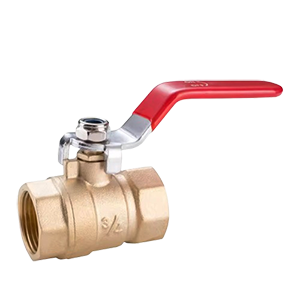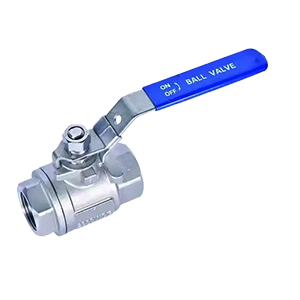In this article, we compare brass vs stainless steel ball valves for marine use to help you make an informed decision, especially when sourcing from a trusted marine valve manufacturer like Qingdao I-Flow.
What Are Marine Ball Valves
Ball valves are essential components in shipboard piping systems. They are used to start or stop flow of liquids and gases by rotating a spherical disc inside the valve body. Their quick shut-off capability, durability, and leak-tight sealing make them ideal for various marine systems, such as:
- ①Fuel and oil transfer systems
- ②Seawater cooling pipelines
- ③Bilge and ballast lines
- ④Fire suppression systems
- ⑤Potable and non-potable water systems
Brass Ball Valves in Marine Use
✅Advantages
- ☆Corrosion-resistant in low-salinity water: Brass contains copper and zinc, offering fair corrosion resistance in mildly saline environments.
- ☆Cost-effective: Generally less expensive than stainless steel.
- ☆Easy to machine: Offers excellent workability for complex valve designs.
- ☆Good sealing performance: Compatible with a variety of seat materials for tight closure.
Limitations
- ①Not ideal for highly corrosive seawater: Brass can dezincify over time, especially when exposed to continuous or highly saline conditions.
- ②Lower pressure ratings: Not suited for high-pressure or high-temperature systems.
- ③Shorter service life: More frequent maintenance or replacement may be required on ocean-going vessels.
✅ Best For
- ☆Freshwater systems
- ☆Service water systems
- ☆Small boats or coastal vessels
- ☆Budget-conscious operations
Stainless Steel Ball Valves in Marine Use
✅ Advantages
- ①Superior corrosion resistance: Especially marine-grade 316 stainless steel, which includes molybdenum for extra protection in saltwater environments.
- ②High strength and pressure rating: Suitable for demanding and high-pressure applications.
- ③Long service life: Low maintenance and high durability under harsh marine conditions.
- ④Versatile: Handles a wide range of temperatures and chemicals.
Limitations
- ☆Higher cost: More expensive upfront compared to brass.
- ☆Weight: Heavier than brass, which could be a consideration in lightweight designs.
✅ Best For
- ①Ocean-going vessels and offshore platforms
- ②Engine cooling and fuel lines
- ③Ballast and bilge systems
- ④High-pressure and critical systems
Key Considerations When Choosing Marine Ball Valves
- ☆Exposure to Salinity: If the system is exposed to seawater, 316 stainless steel is generally the better option.
- ☆Pressure and Temperature: For high-stress environments, stainless steel offers superior performance.
- ☆Budget Constraints: Brass may be suitable for non-critical or freshwater systems.
- ☆Maintenance Requirements: Stainless steel valves are more durable and require less frequent replacement.
- ☆Certifications: Ensure the valve complies with marine standards such as DNV, ABS, or CE.
Why Choose Qingdao I-Flow as Your Marine Valve Manufacturer
At Qingdao I-Flow, we supply high-quality brass and stainless steel ball valves tailored for the marine industry. Our valves are used in shipbuilding, offshore platforms, and marine maintenance systems around the globe. Each product undergoes strict quality control and is manufactured to comply with international maritime certifications.
Post time: May-28-2025


